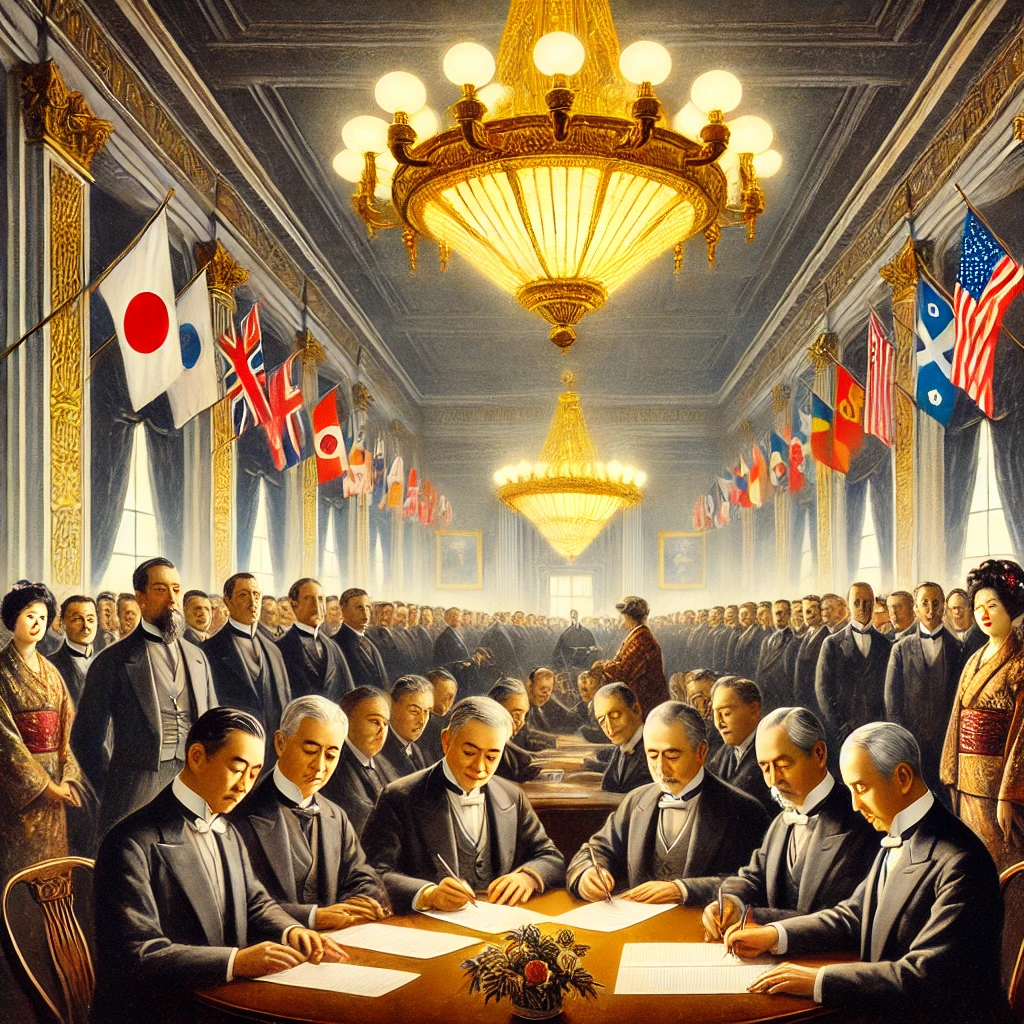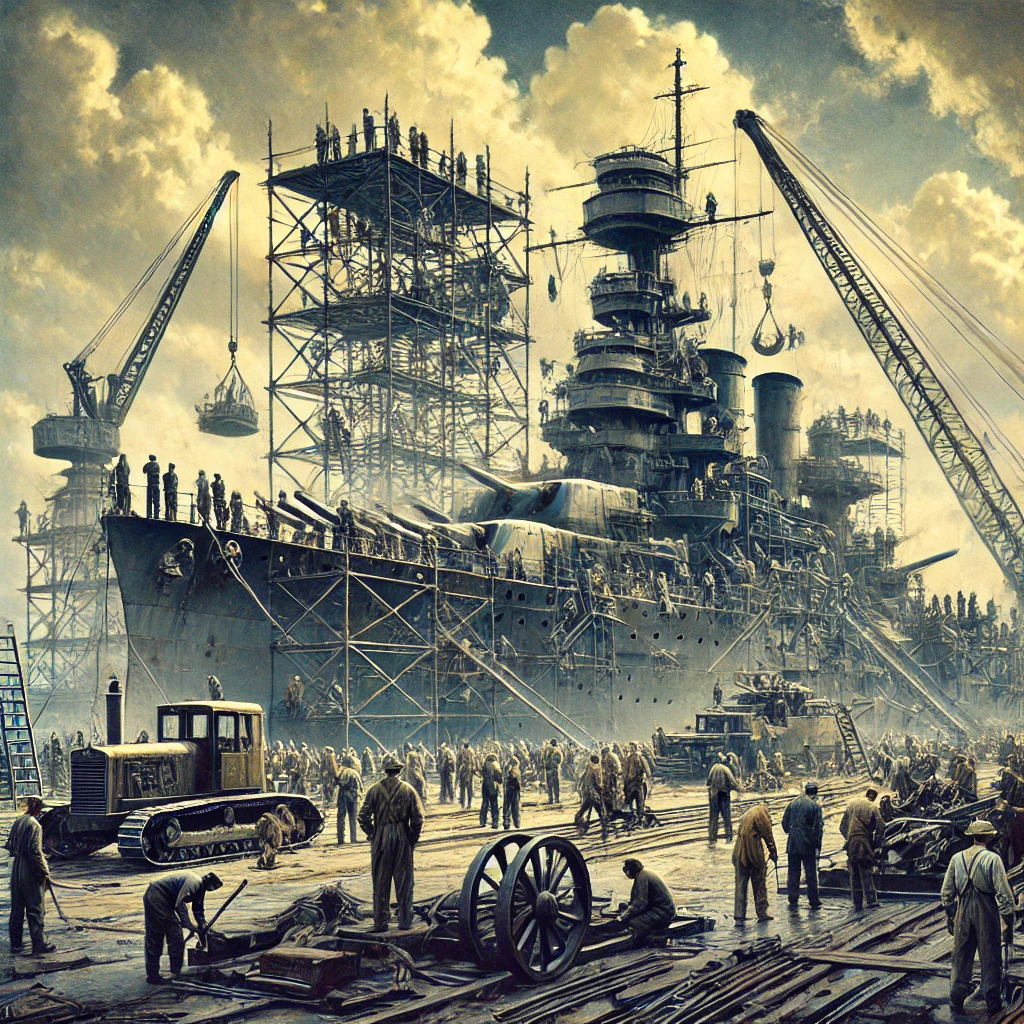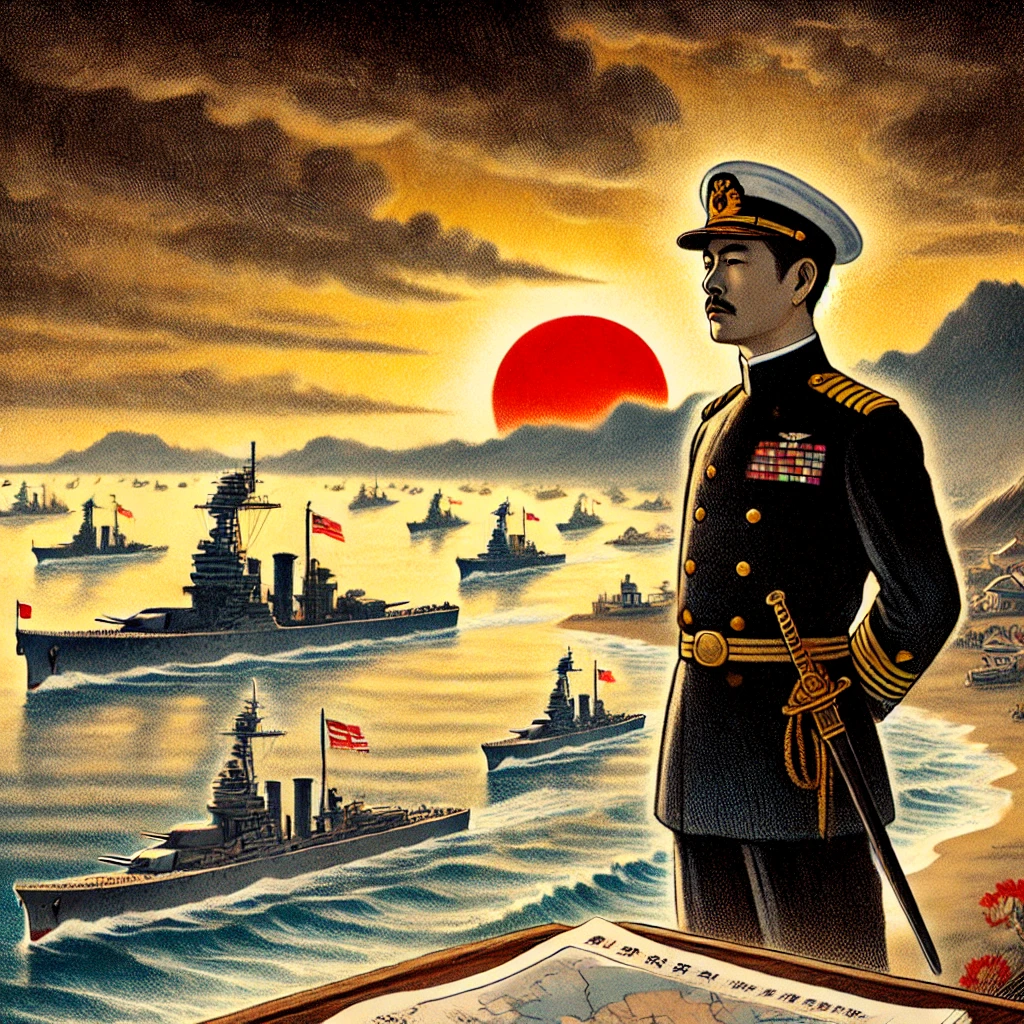On December 29, 1934, Japan officially withdrew from the Washington Naval Treaty, a groundbreaking arms limitation agreement signed in 1922. This decision marked a pivotal moment in interwar geopolitics and foreshadowed Japan’s aggressive military expansion that would culminate in World War II. The withdrawal not only reshaped the balance of naval power but also underscored the growing fractures in international diplomacy.

The Washington Naval Treaty: A Post-War Effort for Stability
The Washington Naval Treaty was established in the aftermath of World War I to prevent a new arms race among the world’s great naval powers. Signed by the United States, the United Kingdom, Japan, France, and Italy, the treaty set limits on the tonnage and numbers of capital ships each nation could maintain. Japan, as a rising naval power, was granted a ratio of 5:5:3 in capital ship tonnage compared to the United States and the United Kingdom.
While the treaty initially succeeded in curbing naval proliferation and fostering a sense of collective security, it was met with resentment in Japan. Many Japanese leaders viewed the 5:5:3 ratio as an affront to their nation’s sovereignty and ambitions, a sentiment that gained traction as Japan’s imperial aspirations grew during the 1930s. These frustrations would ultimately lead to the country’s dramatic withdrawal from the agreement.

Japan’s Withdrawal: A Symbol of Defiance
Japan’s decision to renounce the Washington Naval Treaty was deeply symbolic. By formally rejecting the limitations imposed by Western powers, Japan signaled its intent to break free from what it perceived as unequal treatment. This move was driven by a combination of nationalist fervor, military ambitions, and the belief that an expanded navy was essential for securing Japan’s growing empire in East Asia.
The withdrawal coincided with Japan’s increasing militarization and territorial expansion, including the occupation of Manchuria in 1931 and the establishment of the puppet state of Manchukuo. These actions strained Japan’s relations with Western powers and further isolated the country from the international community, setting the stage for its eventual alliance with Germany and Italy.
Lasting Impact on Global History

The renunciation of the Washington Naval Treaty had far-reaching consequences. In the immediate term, it allowed Japan to pursue an ambitious naval buildup, including the construction of massive battleships like the Yamato and Musashi. This naval expansion contributed to Japan’s ability to wage war in the Pacific, challenging the dominance of the United States and its allies.
More broadly, Japan’s withdrawal highlighted the limitations of interwar diplomacy and the challenges of enforcing international agreements in the face of rising nationalism and militarism. The breakdown of the treaty system underscored the fragile nature of the post-World War I peace and served as a stark warning of the conflicts to come.
